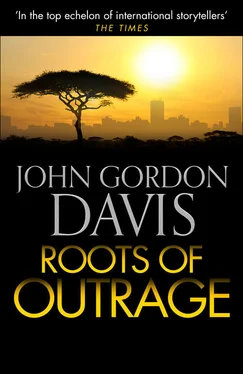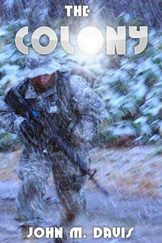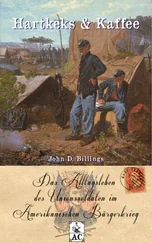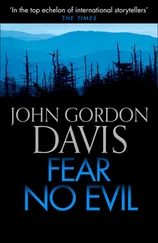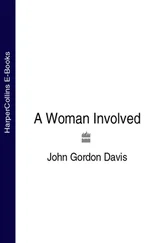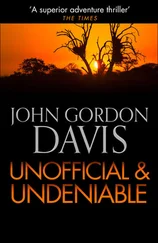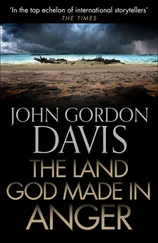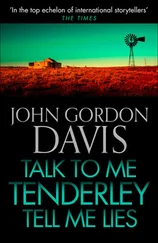Later, lying side by side, replete, he said: ‘Why do you love making the fire so much?’
She smiled up at the sky.
‘It’s freedom,’ she said. ‘Being close to nature. When I was a little girl I longed to go into the bush and see the animals. I longed to go camping. But there are no places where Indians are allowed. We aren’t allowed into the Kruger National Park or the other game reserves except as day-trippers. Going to the Indian beach on the Natal coast was about as close to nature as we could get. And it was always full of other Indians with their picnic baskets and portable radios – it wasn’t nature. And you’re not allowed to build fires on the beach. So the only place you can have a fire is in your backyard – and that sure isn’t nature either. That was just frustration when I was a girl – a mockery of freedom. So now I’ve got the opportunity to do it, here, in real nature, real forest, real mountains, it’s a real treat for me. I want to run and do somersaults. Skip and play the fool.’ She smiled. ‘So making the fire is just responding to a childhood deprivation, I guess. That’s why I get a bang out of it.’
‘And that crazy swallow dive is the same?’
She smiled. ‘When I was a kid I saw a movie with Jean Simmons in it, where she’s shipwrecked as a girl on this desert island in the South Pacific with a boy. And they grow up not knowing anything except each other – and then they fall in love, of course, and have a baby, doing it all just instinctively. And they live off the sea and wild fruit, and they are forever diving off cliffs into this turquoise sea – and they collect pearls and don’t know the value of them, until one day this ship arrives and agrees to take them back to civilization, but the wicked captain finds their pearls and he makes them dive for more, and more, and more, until they’re enslaved, and they rebel and run and hide and eventually the ship sails away without them. But they are happy to be free again, living with nature, just the two of them and their baby …’ She smiled. ‘I saw that movie again and again, and I cried each time. And I longed to be like Jean Simmons, so beautiful, so free, standing there on the lip of the cliff, the wind in her hair, the turquoise water below, then launching herself so gracefully, diving like a wild creature into her underwater wonderworld, amongst all the lovely fish and coral … Anyway, I longed to dive like that, when I was a little girl. But there were no public pools for Indians. Now, when I’m standing up there at the top of the waterfall I feel even better than Jean Simmons. Because I’m like a bird let out of a cage. I’m free in real nature at last, and I’m high , and I’m naked , the sun and wind on my body, and I feel defiant – I want to shout, so the whole of South Africa can hear: “Look at me, I’m as good-looking and smart as you are and this is what I want to say to you all: Fuck you! ” And then I try to do a perfect swallow, to show ’em.’ She turned her head and looked at him. ‘I guess that’s what it is …’
Politics. They tried not to think about politics when they were together, but you couldn’t avoid politics in South Africa, because you lived it. The laws of the land rubbed your nose in it every day. You worried about it, read about it, argued about it, despaired over it. Mahoney wrote about it, daily Patti seethed under it; both were the victims of it, riven apart by it.
The newspapers were full of it. Every other day, it seemed, the ANC caused another explosion, and Poqo kept striking at random. Much of this bad news was half-concealed from the public by censorship laws, but everybody knew about the terrible politics of the rest of Africa: that was not censored. The terrifying triumph of the devil in Kenya, the whites selling up their lovely farms for a song, the convoys of farmers fleeing to South Africa – ‘Thank God for South Africa and Hendrik Verwoerd’. Everybody knew about the independence of Uganda, the slaughter of his tribal enemies by Milton Obote, the chaos of his socialist policies. Everybody knew of the economic chaos of Tanzania where Julius Nyerere was uprooting whole peoples with his socialist policies of ‘villagization’. Everybody knew about the chaos in the Congo, the mayhem, the murder, the rape, the looting, the arson, the cannibalism. Everybody knew about that terrifying shit happening in the rest of Africa. Everybody knew that the USSR and China were behind it all, that they intended to turn Africa into a communist continent. Everybody knew that the USSR and China were behind the ANC and PAC, that the ANC was dominated by the South African Communist Party; and everybody knew that Nelson Mandela and his MK were the bastards causing these explosions.
‘He’s National Hero Number One,’ Patti said. ‘I pray for him …’
Nelson Mandela, the ‘black pimpernel’ who flitted in and out, organizing support outside the country, training, arms, money, masterminding the sabotage inside the country. Rumour had it he moved like a fish through the waters of the people, as a tribesman, a businessman, a delivery boy, a mine worker, visiting his underground cells, reconnoitring his targets, drawing up his plans, smuggling his explosives, building his bombs, getting them to his men. His face was well-known, a handsome, intelligent face, splashed across the police posters offering huge rewards for information leading to his capture; but the bombs kept exploding, damaging electric pylons, post offices, government offices, prisons, railway installations.
‘Don’t you think he’s a hero?’ Patti demanded.
Yes, Mahoney thought Mandela was heroic. But Patti believed that Mandela’s bombs would eventually frighten the whites so much it would bring about the collapse of apartheid; Mahoney did not believe that. Mandela’s bombs would only frighten the whites into the government’s laager, like the Mau Mau atrocities did in Kenya, like the nihilism was doing in Rhodesia. No way would Nelson Mandela’s bombs bring down the South African government: they would only make the laws harsher. The only thing that would bring down the government was a full-scale invasion, and the Defence Force would shoot the shit out of that too. And who was going to support such a communist invasion in the middle of the Cold War? If America was prepared to risk nuclear war against the USSR when she tried to emplace missiles in Cuba, who was prepared to support an ANC war and place the Cape sea route in the hands of the South African Communist Party and Russia? America had just fought the Korean War, it was fighting the Vietnam War: the West had already lost most of Africa to the USSR and China – no way were they going to lose South Africa and the Cape sea route by supporting Mr Mandela and his home-made bombs. Yes, Nelson Mandela and his boys in MK were brave men taking on an unjust system, but were they not also quixotic figures?
‘Quixotic!’ Patti cried indignantly.
‘No, look: government offices and electric pylons are important targets, but he can’t win like that. The Afrikaner won’t be scared away by bombs – his whole culture, his whole history is one of fighting, fighting the Kaffir Wars, trekking into the unknown, then fighting the whole mighty British Empire – so he’s not going to surrender because of a few bombs, that’ll only make him more repressive.’
‘It’s a start,’ Patti said. ‘Somebody’s got to start hitting this government. We can’t just accept our fate. And it’s got great propaganda value – it shows the masses that the flame of freedom is burning brightly.’
But bombs? There was something distasteful about bombs that tarnished Mandela’s image. Blowing up bridges, railway and electrical installations was legitimate in an armed struggle, but the step from there to bombs in supermarkets and hotel foyers was a short one.
Читать дальше
